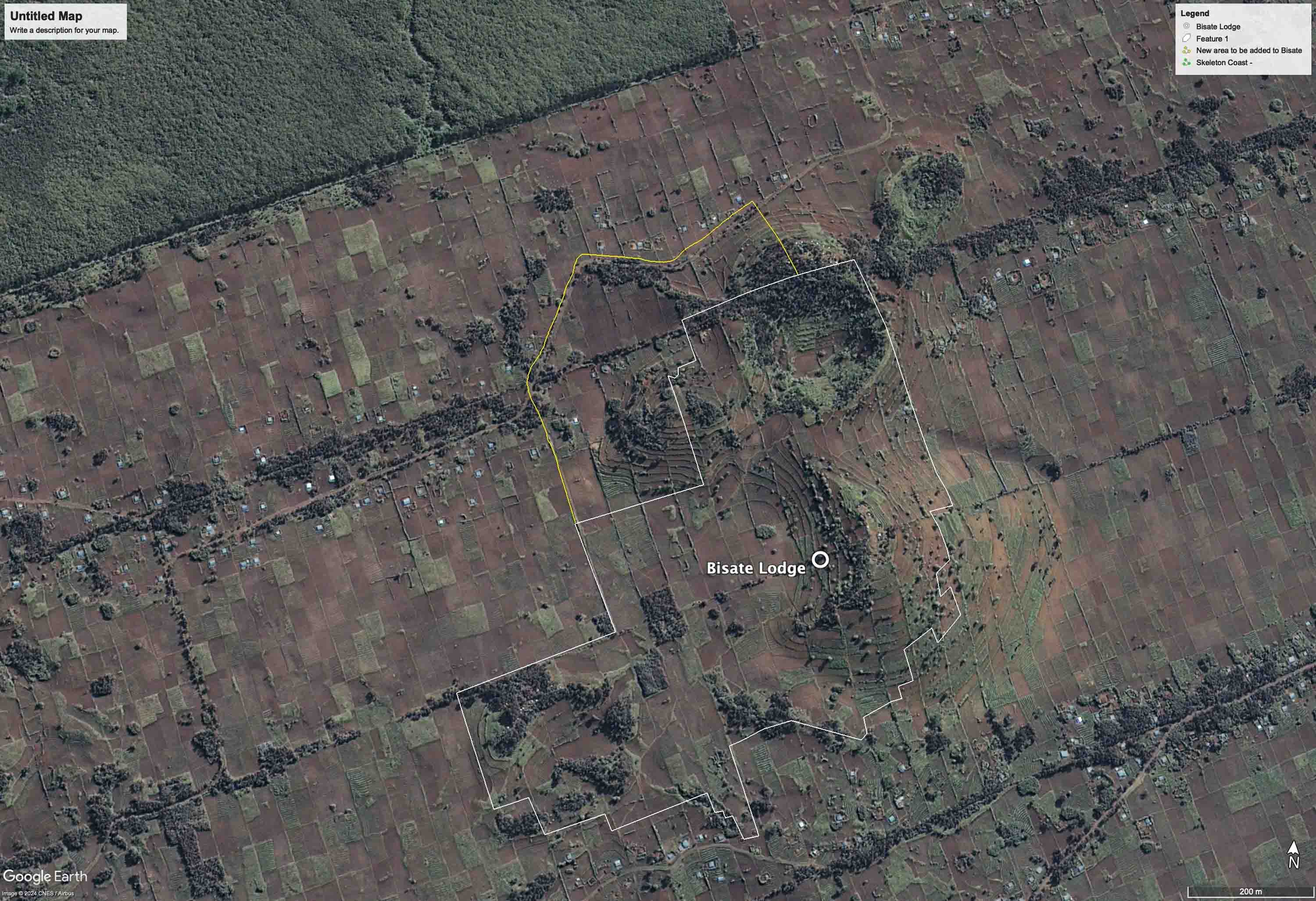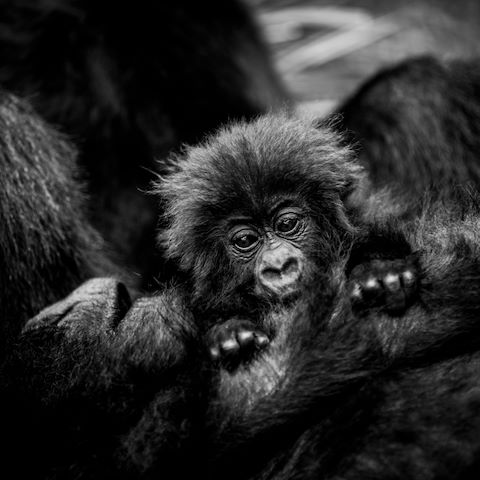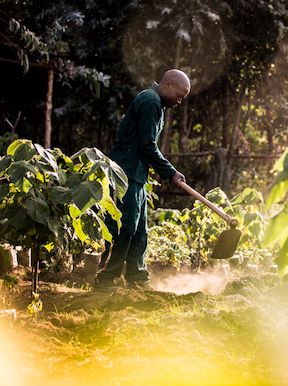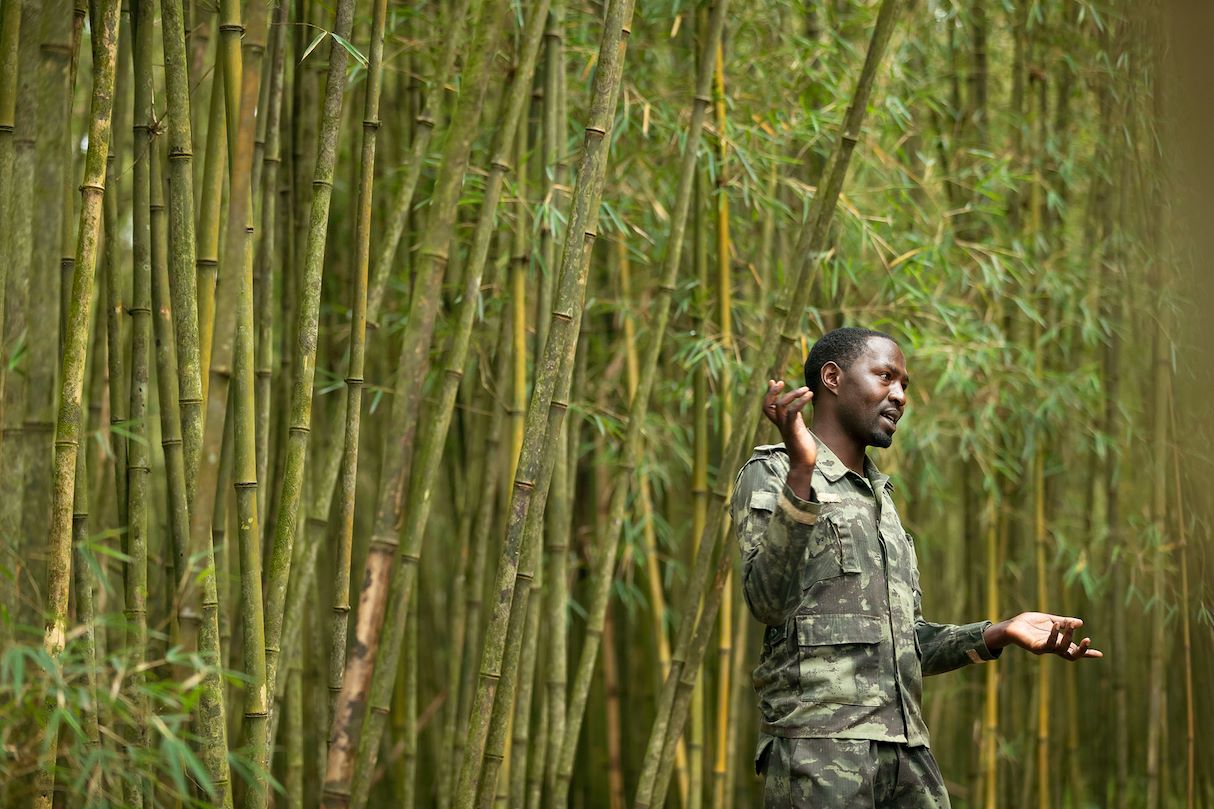Our approach to solving it
Volcanoes National Park is home to one of only two remaining populations of the Endangered mountain gorilla. The 160-square kilometre transboundary park, isolated and small, can't adequately sustain gorilla habitat and other wildlife. Meanwhile, limited economic opportunities have prompted local communities to expand agricultural land, aiming to improve household food security. Such activities, along with other behaviour, have significantly escalated deforestation over the last three decades.
The combined efforts of the Rwandan government, NGOs and local stakeholders have resulted in the successful protection and conserving of Volcanoes National Park. This has increased the number of mountain gorillas to over 1,000 at the last census (2018). Due to this exciting trend, the mountain gorilla was moved from Critically Endangered – one step away from Extinct – to Endangered. However, further protection and growth in numbers is still vital, creating the need to expand the habitat of this unique species. Consequently, the Rwandan government has initiated an ambitious plan to expand Volcanoes National Park by roughly 23% in the coming years.

Google Earth image of Wilderness Bisate in 2008
Wilderness’ commitment to the area’s reforestation, and working together with the communities surrounding the national park via a sustainable model, plays an important role in the park expansion.

Google Earth image of Wilderness Bisate in 2023 clearly indicating the extent of the reforestation project's habitat restoration
The Bisate and Sabyinyo reforestation programme is an exemplary and pioneering programme. It has propagated close to 100,000 indigenous trees that have been planted and are now independent of our care in the area, expanding habitats and attracting wild species into these new areas. Our two indigenous tree nurseries are models for others now following this trend.
- Using high-end tourism as a lever, Wilderness Bisate and Wilderness Sabyinyo have created jobs for local people living around the park, providing a more sustainable livelihood and reducing dependence on subsistence farming. Through education and training opportunities, the employees have a chance to increase their knowledge and be promoted within the hospitality sector.
- SACOLA, the Sabyinyo Community Livelihood Association which owns Wilderness Sabyinyo, earns revenue through rental income and profit-share. SACOLA uses these funds to drive socio-economic development in the Kinigi and Inyange sectors adjacent to Volcanoes National Park.
- Wilderness Bisate has partnered with Co-operative Tuzamurane Kaguhu, comprising 241 households in the area. The partnership provides employment at Bisate, additional labour for projects, support for the reforestation efforts, and deliveries of local supplies.
- Two community committees have been established in the Bisate and Sabyinyo areas, through which community representatives implement and manage empowerment projects in the villages. This has resulted in the creation of large-scale tree nurseries, the payment of medical insurance premiums, a water harvesting project that now provides water to over 5,000 people, sports grounds being built at the schools, and many other projects.
- Through Wilderness’ educational programme, Children in the Wilderness (CITW, a primary driver of the EDUCATE pillar of the company’s Impact strategy), primary and secondary school students in the area receive weekly extra-curricular environmental education. Wilderness and CITW also facilitate bursaries for deserving children’s secondary schooling.
- Micro-finance and micro-enterprise projects have also been initiated and funded to support dairy, pigs, poultry, bee-keeping, carpentry, and fruit-growing businesses.
High-end tourism is a lever for creating sustainable economic opportunities that empower local communities and support the partnerships required to protect Endangered gorilla populations.













